The Müpa Budapest Concert Hall offers a series of new discoveries on the evening of 10 March. We will meet a young Hungarian conductor, Kornél Thomas, who is also a composer, and his work, conducted by himself, is a prize-winner in the Müpa music competition. Luis Aracama, young Spanish soloist of the Saint-Saens Cello Competition, is only seventeen years old, but has been performing and winning international competitions for several years. In Chopin’s Piano Concerto in E minor, we can see Monika Ruth Vida, a young Hungarian pianist who has been in touch with music since she was a baby, learning to read at the age of two and learning to score soon after.
The composition to be performed at the concert, String Zing, won the jury’s acclaim in the chamber orchestra and chamber symphony categories of the Müpa competition, but Kornél Thomas also won prizes in the solo and chamber music categories. A musician with American roots who is active in several countries, he is also a composer-conductor. His mother is Hungarian and, although not born in Hungary, he grew up there and lived for many years in Austria and later in the United States. He has been a regular visitor to Hungary for four or five years, working with several orchestras.
Where are your strongest ties and how long have you been working with Savaria Orchestra?
I have been working with the Savaria Orchestra for five years. In 2017, I started working with them as assistant conductor, which lasted three years. After that, I was a candidate conductor for two years, together with four other colleagues, conducting several concerts with them. We have a lot of history together, a lot of good things happened to us during that time. I also work with the National Philharmonic Orchestra as a guest conductor on a regular basis, most recently in October last year. I have conducted three different performances at the Opera, a ballet, a French Baroque piece and my second time conducting a contemporary American piece. I have a lot to do and I am very happy about it.
You have strong ties to America, you were born there and your father is American. In addition, he works abroad a lot. Does this influence your compositional work…?
Yes, my wife lives abroad in America, so it’s definitely a strong connection to this day. When I’m in America and I’m composing there, I work with musicians there.
You often thank yout wife for your work as a composer. What does her help consist of?
For a long time I found it difficult to find inspiration in composing music, and a big thanks goes to my wife because she encouraged me that whatever I wrote, she would play it. That was an incredibly important thing for me. Fortunately, it’s been three or four years since then and it’s completely set me right.
László Draskóczy was one of your teachers who inspired you to compose. What did you take with you from your time with him?
Unfortunately, Mr Draskóczy is no longer with us, but he was the first teacher who taught me not just composition, but music itself. His lessons covered a lot of ground and I was lucky to have four and a half hour lessons with him in my last two years at the conservatoire. We spent a lot of time together, not just on all kinds of motets and fugues, but also on composition and things to do with conducting, which is why he is such an important person to me.
Leonard Bernstein is a very important person for you. How do you think of Bernstein most of all, as a conductor, as a composer or as a person who has made music education outstanding?
I see Bernstein as a real person when I study his compositions and conduct the pieces he wrote. That’s when it becomes clear to me what a fantastic musician he really is. The recordings of him conducting Mahler symphonies are incredible, I watch them a lot, but I think he did a fantastic job of composing and giving to posterity. He uses light music and jazz alongside the serious American style, and he does it in such a considered way that I can feel very close to everything he did.
The Müpa concert will include the world premiere of your composition String Zing, alongside two classical pieces. What should we know about the piece?
I wrote this piece at the beginning of the pandemic, starting in May 2020 and finishing it in two or three weeks. With the outside ear, you listen to jazz harmonies and rhythms, so you think you’re listening to a light genre, but you’re not. There is also a lot of inner suffering and the imprint of the insecurities that accompanied the pandemic. This peril can be felt in the rhythm of the piece. It has three movements, the first and last movements are fast, the middle is slow. I use American styles, such as Bernstein, small parts of Gershwin’s pieces, and there is contemporary American music. Meanwhile, because I grew up in Hungary, Bartók and Kodály are still in my head and I can’t get away from them, so my soul is in there. The mixture of all this gives me the unique sound that I am. For a long time I was searching for my own voice in composing, which of course is always evolving and changing, but I think it has become a very good starting point for what you could say is the sound of Kornél Thomas.
I have heard that one of your compositions was also awarded a prize in another category of the MMC.
Yes, String Zing is a piece for chamber orchestra, and I have written two chamber works for solo violin, and that was also a winner. I do not yet know the date of the latter, but the plan is to premiere that one as well.
Does anything link the three pieces on the concert programme?
I’ve been thinking about this a lot, I’m hard pressed to find one, but it’s noticeable that we arrive at the end of each piece in E major, so all three works are moving in the direction of positive thinking. You have a lot of inner struggles, you have all sorts of perils and stresses, but it’s worth thinking positively even in these circumstances. This is what these works suggest.
How much does conducting your own compositions influence your work as a conductor? Is the emotional attachment stronger?
There’s a little extra stress because you never know in advance how the orchestra is going to react to the piece. But you have to be able to look at the piece as a conductor. When Bernstein made the WS story CD recording with Carreras, he said that he had to re-learn the piece, that he had to approach it in a completely different way as a conductor than he did as a composer. That’s what happened to me, I had to approach it in a completely different way. As a composer, you can let yourself go, but as a conductor you have to learn exactly what you’ve written down, so you have to use a completely different part of your brain.
Young artists will be the soloists of the concert, and your portfolio emphasises working with young people. Do you have any experience with the two soloists who will be performing?
For me, the young generation of musicians is very important because without them there is no future. We need to teach them to love and respect music, so that they will have someone to deal with the many beautiful pieces of music that are part of our common heritage. This is the first time I will be working with these two young soloists, and I look forward to working with them.
Why should we buy tickets for this concert?
Because they will hear two great young artists, and an exciting new piece that I think they will ‘eat up’ with gusto. It is always exciting to see the brilliance of the young generation and to hear a new piece. It gives the audience a completely different feeling than when they hear a piece they already know.
Interview: Anna Rácz
Translation: Nóra Fehér

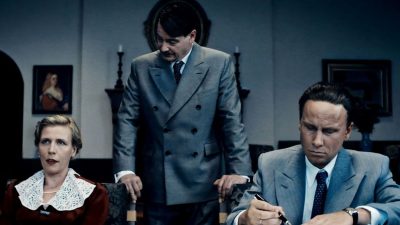
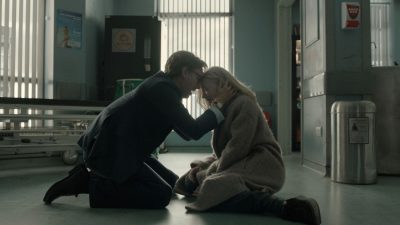


















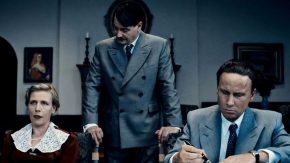
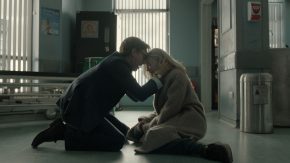



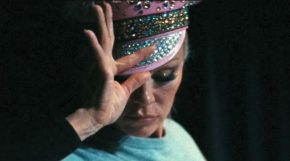
Comments